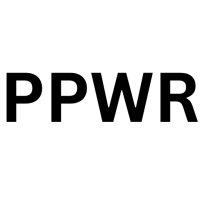Summary
Cut through the green tape
We don't push agendas. At Net Zero Compare, we cut through the hype and fear to deliver the straightforward facts you need for making informed decisions on green products and services. Whether motivated by compliance, customer demands, or a real passion for the environment, you’re welcome here. We provide reliable information—why you seek it is not our concern.
Details
- European Union
Any entity placing packaging on the EU market, regardless of their country of origin.
Deep dive
Background
The EU formally adopted the Packaging and Packaging Waste Regulation (PPWR: Reg. 2025/40) in December 2024, replacing the Packaging and Packaging Waste Directive (PPWD: Directive 94/62/EC). It entered into force on 11 February 2025, with most provisions applying from August 12, 2026, following an 18‑month transition. Building on previous EU waste legislation like the old directive and the Single‑Use Plastics Directive (SUP: Directive 2019/904), the PPWR harmonizes packaging rules across all 27 Member States. As part of the European Green Deal and broader climate-neutrality goals, the PPWR aims to reduce packaging waste, enforce recyclability by 2030, boost recycled content, limit virgin materials, cut greenhouse gas emissions, and support circular economy targets up to 2050.
Reporting and Compliance Requirements
Under the PPWR, economic operators such as manufacturers, importers, processors, distributors, and online platforms must register in a national producer registry, a centralized electronic database operated by each Member State that issues a unique Extended Producer Responsibility (EPR) registration number before any packaging is first placed on the market. Once registered, producers must submit detailed annual reports covering the weight and material composition of packaging placed on the market, percentage of recycled content, recyclability grades (A–C), labelling details, among other information. To fulfil these obligations, producers may act individually or appoint a Producer Responsibility Organization (PRO)—a publicly or privately authorized body that manages their EPR duties, including fee payments, take-back schemes, labelling support, waste surveys, and reporting. By August 2026, all Member States must deploy interoperable registries and data-sharing systems, aligning fee calculation and reporting inputs across the EU to streamline cross-border compliance.
Penalties for Noncompliance
Under the PPWR, EU countries are required to set penalties for breaches (e.g. failure to register and non-payment of EPR fees) that are effective, proportionate, and dissuasive. However, the Regulation does not prescribe specific penalty amounts. Instead, it empowers national authorities to design enforcement systems that reflect local legal principles and enforcement practices. This includes imposing administrative fines, civil coercive measures (like sanctions or injunctions), market bans, or orders to withdraw products from sale. When fully applicable, penalties for noncompliance could therefore vary significantly across countries.
Enforcment Outlook
Legal Challenges
Despite strong support for PPWR harmonization, some provisions of the PPWR are facing legal challenge. For example, the Czech Waste Management Association in March 2025 filed a case at the EU Court of Justice, challenging the PPWR’s ambitious reuse and recycling targets, labeling them technologically or economically unachievable. Yet other objections have been raised around PFAS (Per- and Polyfluoroalkyl Substances) restrictions in food-contact materials and bans on single-use packaging the role of state-run Producer Responsibility Organizations (PROs). These disputes remain active and unresolved, and their outcomes may influence future national implementation of the PPWR.
Current Status
The PPWR entered into force on 11 February 2025 and is set to become fully applicable in August 2026, opening an 18-month implementation window. Designed as an EU Regulation rather than a Directive, it applies directly across all 27 Member States, ensuring uniform standards on packaging design, recyclability, recycled-content targets, and EPR compliance. Current implementation efforts include developing harmonized labelling standards, QR codes, and national deposit-return schemes for plastic bottles and cans, which must be operational by 2029. Member States have started reviewing existing national regulations and aligning them with PPWR requirements. Spain, for example, is updating its Royal Decree on packaging. Additional details on how the regulation will be implemented are expected to be released soon by the European Commission.
Resources


